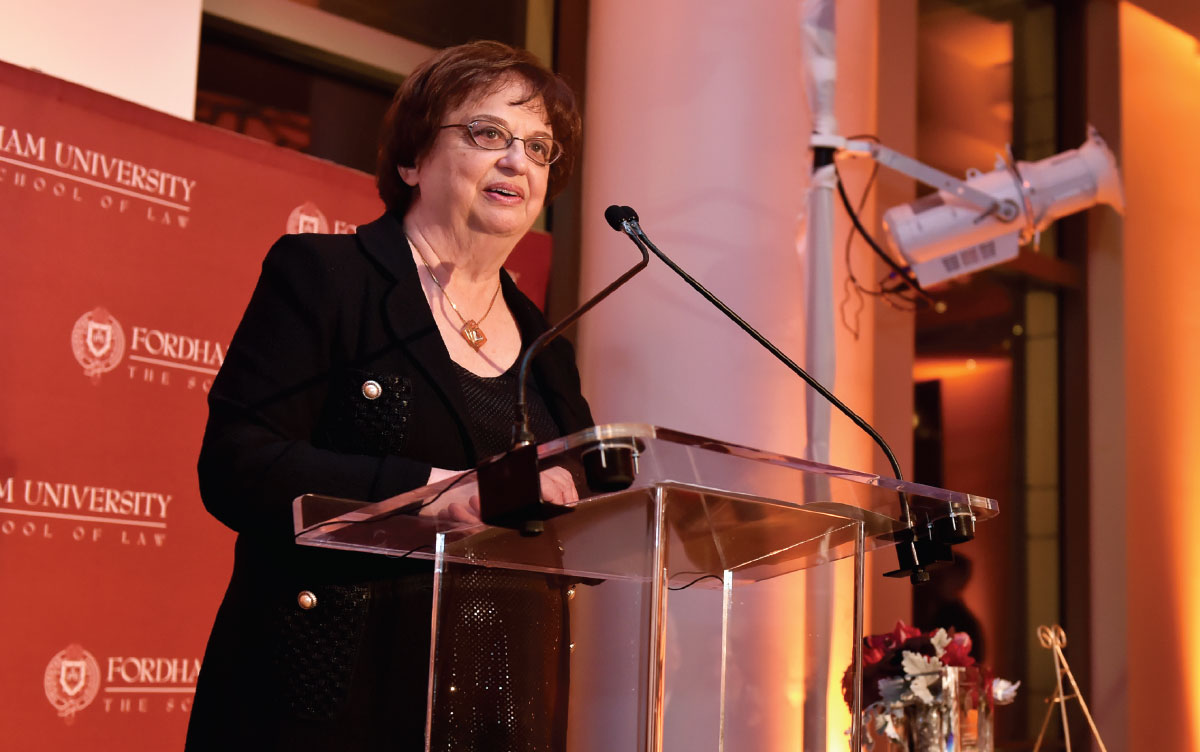
Underwood has been New York’s solicitor general since 2007, with the exception of May to December of 2018, when she served as New York’s first woman attorney general. Dean Diller described her as one of the nation’s leading Supreme Court advocates (she has argued before the U.S. Supreme Court 21 times). “Barbara Underwood is a lawyer’s lawyer,” said Diller. “She embodies the highest standards of the legal profession, promotes the advancement of justice, and acts as a fearless trailblazer for women in the law. And for that, we are thankful.”
Just a month earlier, on September 24, the Stein Scholars Program in Public Interest Law and Ethics awarded former faculty director and current Fordham Law legal ethics and criminal law professor Bruce Green the Stein Scholars “In the Service of Others” Award, for his leadership and commitment to shaping the values and ethics of students and alumni. Said Green: “I could not have imagined then that working with the Stein Scholars, along with my talented colleagues, would become the centerpiece and highlight of my teaching career.”
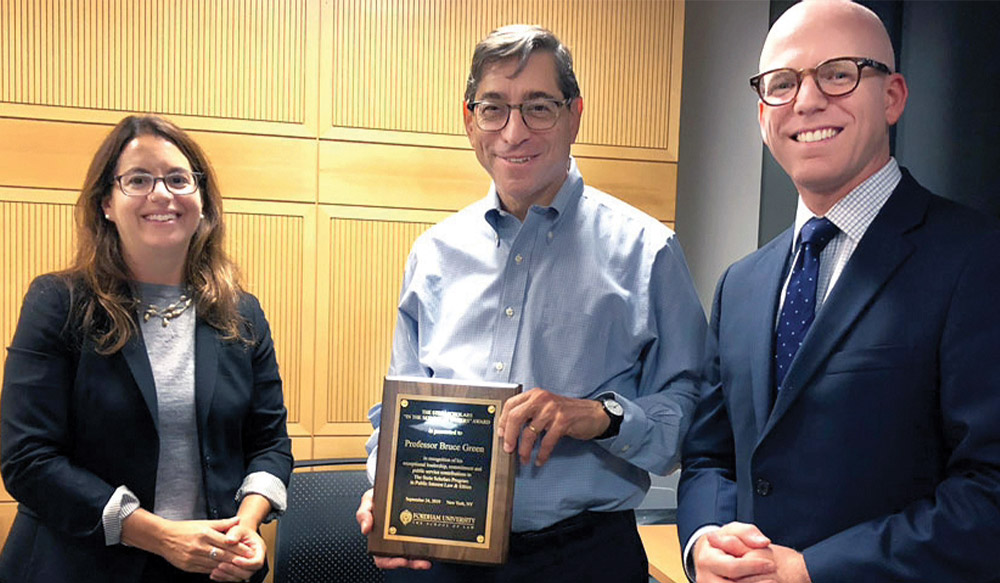
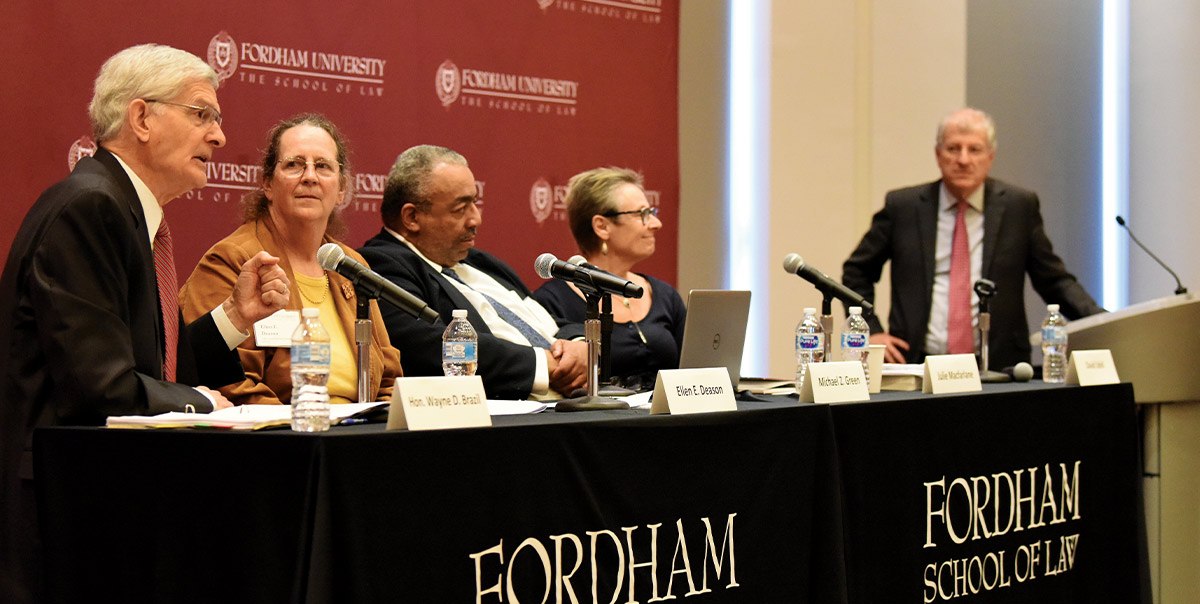
“Alternative dispute resolution [ADR] is increasingly becoming the norm rather than the alternative,” remarked Dean Matthew Diller to an audience of law students and ADR practitioners who gathered at Fordham Law School on November 1 to listen and contribute to panels including diversity in ADR practice, online dispute resolution, and cross-cultural perspectives. One reason: Traditional litigation can sometimes be more rigid, time-consuming, and expensive. The event, “Achieving Access to Justice Through ADR: Fact or Fiction?” was part of Fordham Law’s A2J Initiative, and was hosted by the Fordham Law Review, Fordham Law’s Conflict Resolution and ADR Program, and the National Center for Access to Justice at Fordham Law. In one panel, Ellen E. Deason, a law professor at the Ohio State University Moritz College of Law, highlighted ADR’s potential to produce results that could be better than those produced by a court directly applying the law: “Many of the mediation and arbitration values support the possibility of moving results of a dispute away from a court outcome and toward a different perception of justice,” she said. Julie Macfarlane, a law professor at the University of Windsor Faculty of Law, said she tends to focus more on access-to-justice issues. “In the U.S. and in Canada, more than half of the people who come to family court come without lawyers,” she observed. “There is a profound systemic bias against people who represent themselves and a real unwillingness to see them as equal players in the legal system. We need to think very seriously about the kinds of support that we offer people who lack representation so we can allow them to participate.”
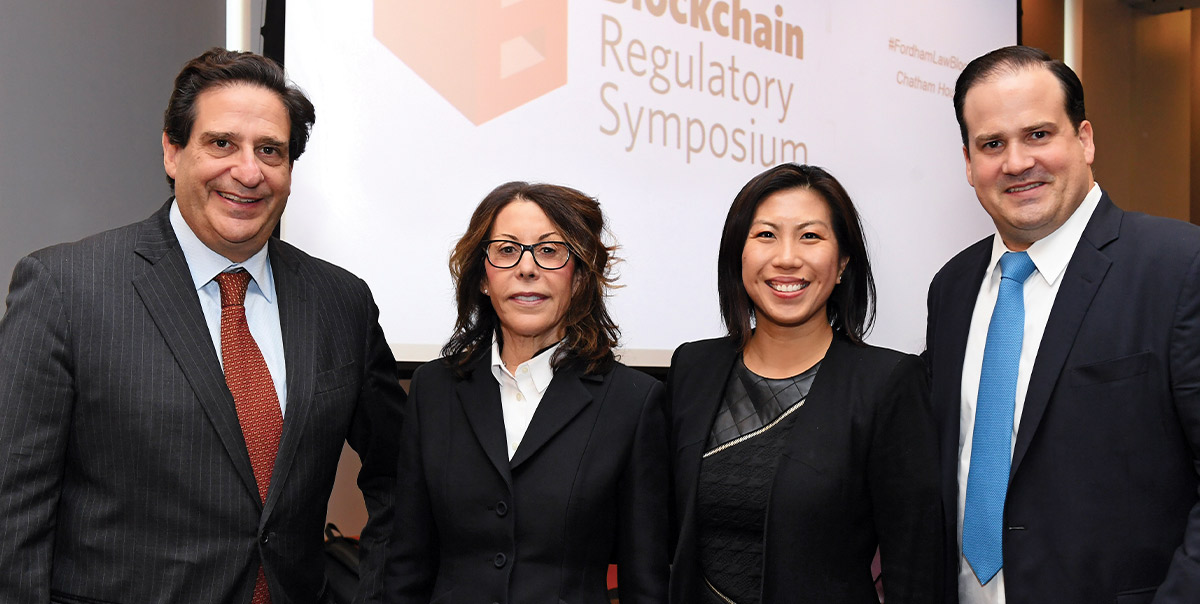
Back in 2008, when it was invented, blockchain was meant to serve as an open and accessible record for transactions using the crypto currency bitcoin. Before long, however, other cryptocurrencies began to utilize blockchain, and questions about how to regulate transactions and protect consumers have come to the fore.
These and other topics were addressed on November 11, at Fordham Law School’s Blockchain Regulatory Symposium, which brought together securities lawyers, legal scholars, and blockchain experts. One issue that took precedence: Many of the most appealing aspects of blockchain—its inherent democracy and decentralized nature—also make it harder to understand and more difficult to regulate. One roundtable participant wondered: “In a truly decentralized marketplace, who’s accountable?” Another complaint about the technology: It can be incredibly opaque to the average consumer—a “back end technology,” as one panelist put it. To see how law adapts to the rise of blockchain, one expert advised looking to the courts, where new rulings in blockchain-related cases could begin to set new precedents. “The more educated the judges are, the better the law will be,” she said.
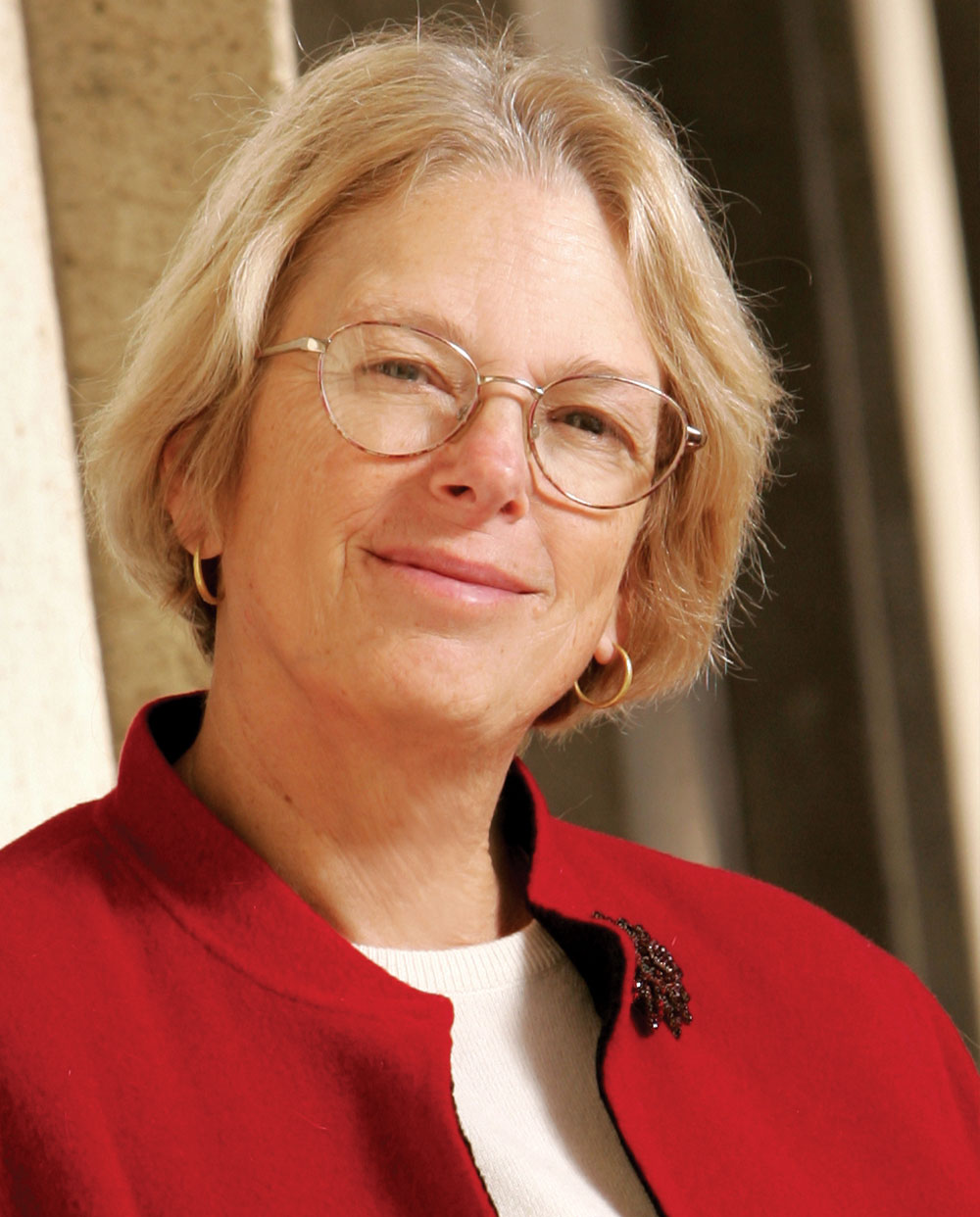
On October 23, Fordham Law School hosted a packed room of students to hear Pam Samuelson, University of California, Berkeley law professor and the Bacon-Kilkenny Distinguished Visiting Professor of Law at Fordham, talk about “Challenges to Civil Liberties in Cyberspace.” In a discussion moderated by Professor Olivier Sylvain, Professor Samuelson explored a wide range of topics, including the evolution of digital copyright law, privacy issues, and the First Amendment. Samuelson, an award-winning pioneer in digital copyright law, intellectual property, cyberlaw, and information policy, touched on a number of complex challenges, including legal questions that have emerged out of the growth of applications for user-generated content like Instagram and streaming services like Spotify. “For many, it’s not obvious, but I believe it is a civil liberty issue that creators have the right to enforce their property rights,” she said. Professors Samuelson and Sylvain noted the major differences between the United States’ and the European Union’s approach to privacy protections. Unlike in Europe, Professor Samuelson explained, the U.S. still has no comprehensive federal privacy laws on the books. Added Professor Sylvain: “The U.S. also has a relatively recent and long tradition of systematic privacy invasion. This history has not done enough to motivate policymakers to enact anything resembling the GDPR. That’s too bad.”
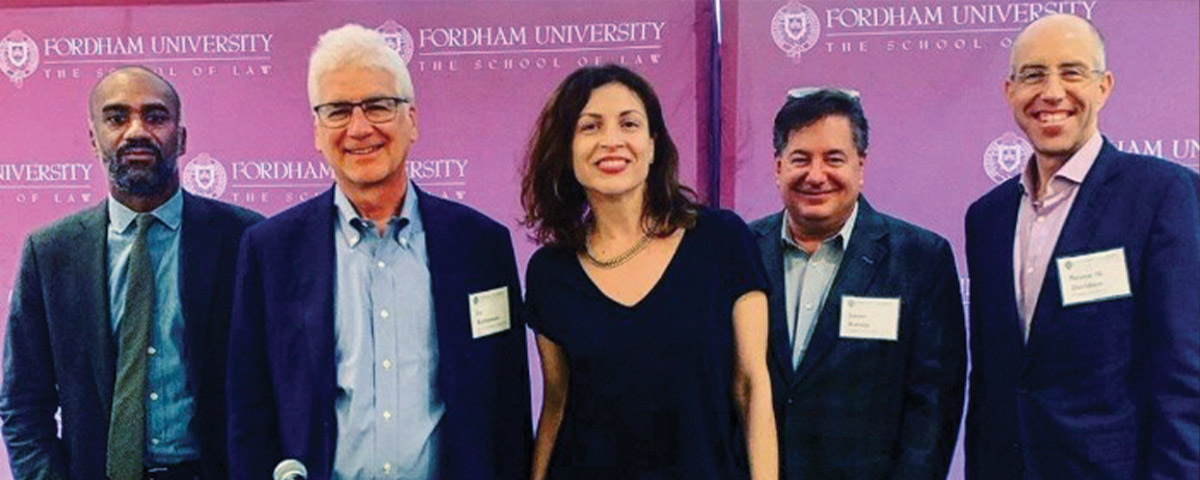
On October 25, Fordham Law’s Urban Law Journal hosted the 11th Annual Cooper-Walsh Colloquium titled “Urban Intelligence and the Emerging City,” comprising a series of panels on the evolution of urban intelligence. Urban intelligence refers to the way cities can make more informed decisions based on feedback between individuals and the urban environment via data analytics, machine learning, and artificial intelligence. Professor Nestor Davidson, faculty director of the Fordham Urban Law Center, moderated a lively panel on how urban intelligence may empower cities to improve efficiencies in areas like infrastructure, sustainability, and social services. But he noted that its increasing use affects a multitude of rights, including privacy, due process, and equal access. Professor Davidson provided a personal example: He plans to use the MTA’s new “tap and go” fare payment system, One Metro New York. However, he acknowledged that once he did, the MTA and Apple would likely know tremendous details about his commuting habits. “That’s a trade-off I’m willing to make, but I probably have no idea of the potential harms,” Davidson said. “Perhaps … we could [have] a more sophisticated conversation about [that].”
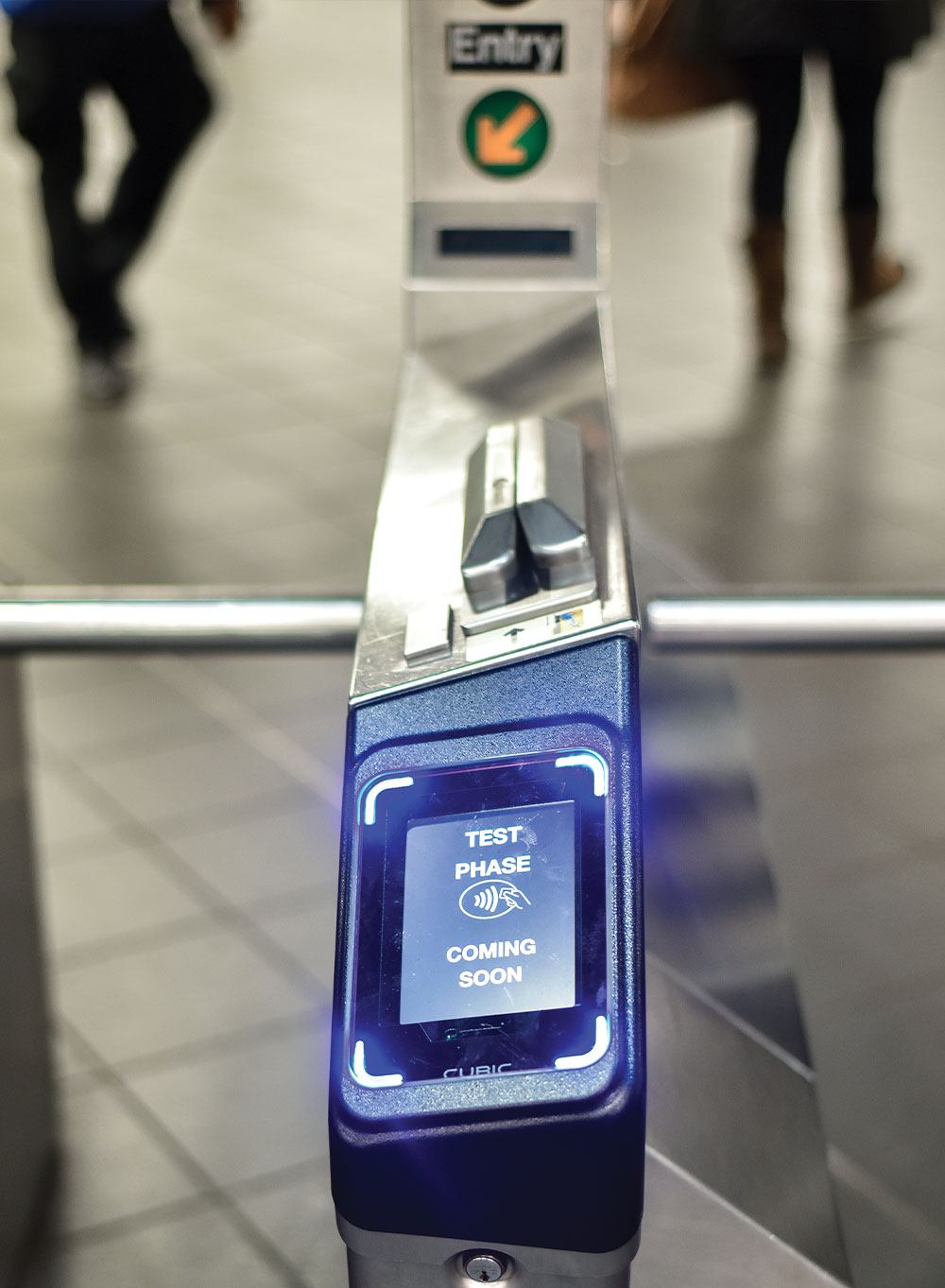
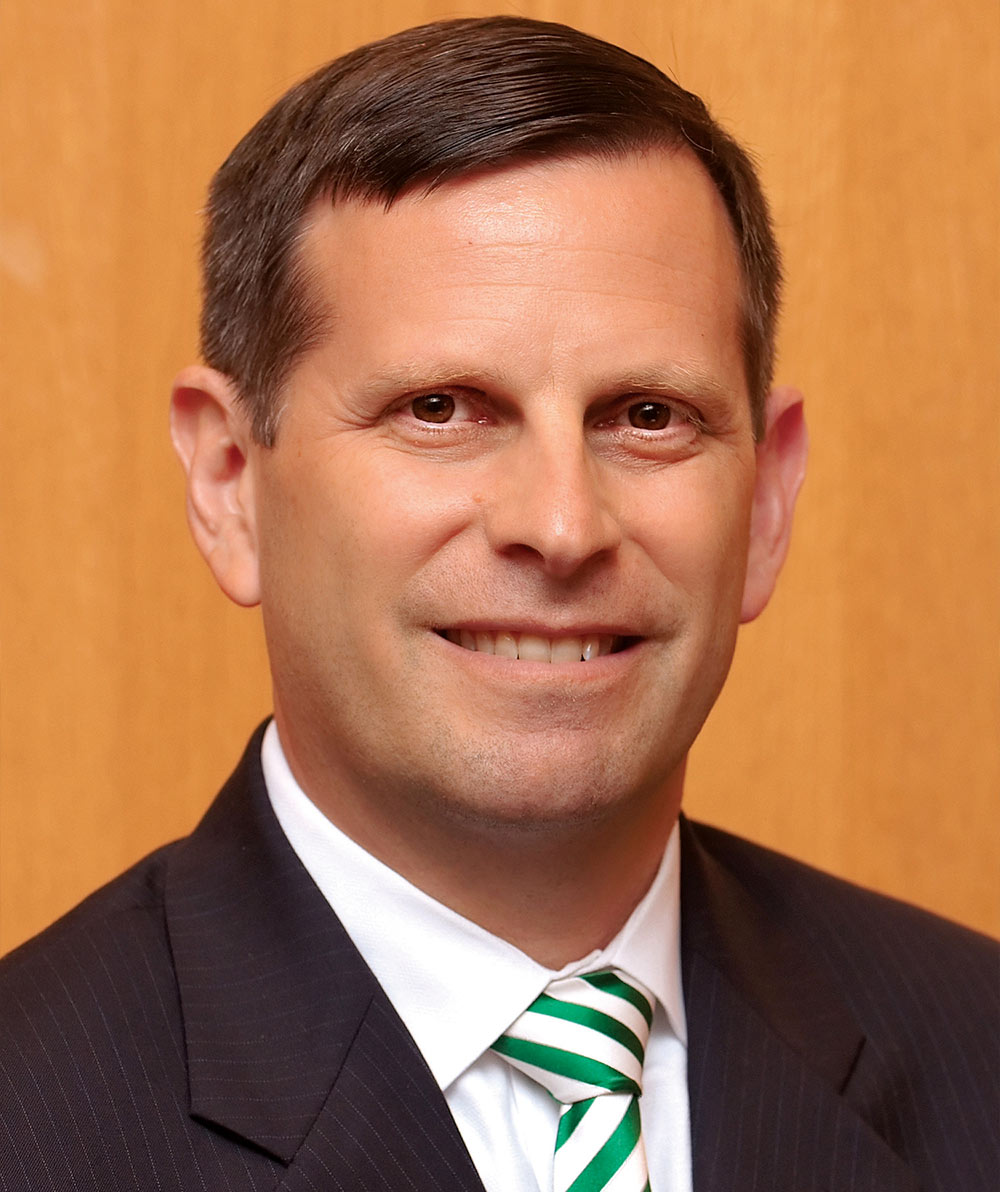
The National Science Foundation awarded a $1.2 million grant to a team of researchers from Fordham University, Carnegie Mellon University, and Penn State University to develop a “privacy assistant” tool. Professor Joel Reidenberg was one of the recipients of the grant, and will be one of the principal investigators on the project to develop a privacy tool that will not only automatically read the text of privacy policies, but that will also have knowledge of the law, common data collection and use practices, as well as information extracted from news feeds.
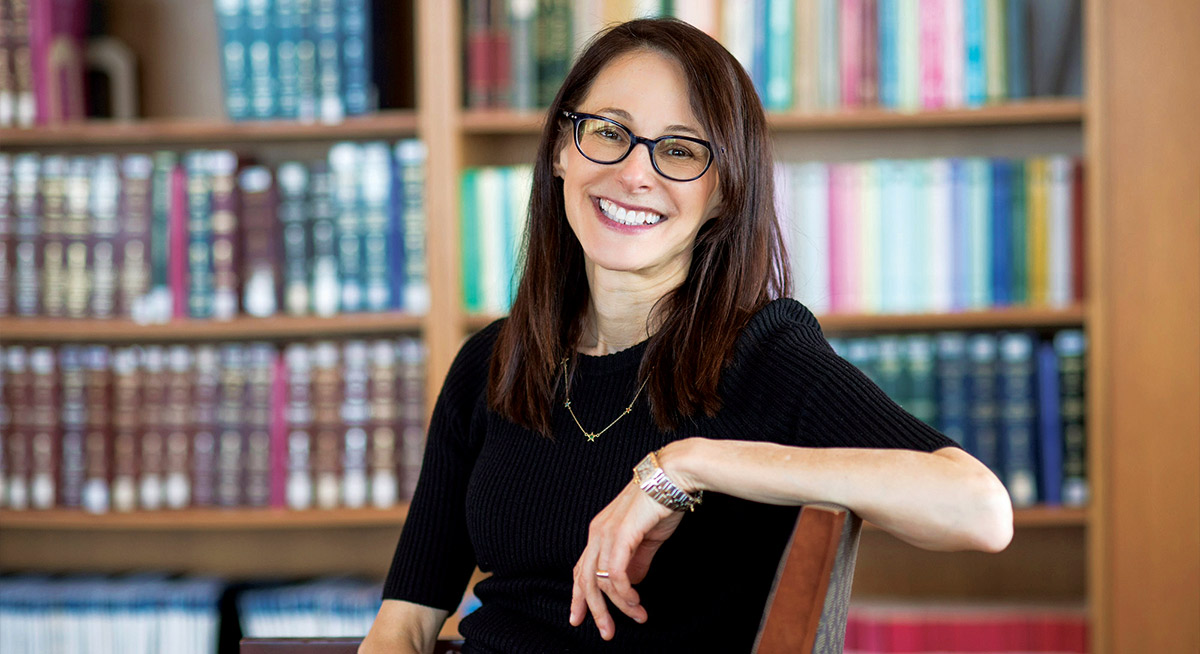
In September, Fordham Law alumna Danielle Citron ’94 was one of 26 recipients of a “genius” grant, the prestigious fellowship awarded annually by the MacArthur Foundation. Citron, a law professor at Boston University, was a visiting professor at Fordham Law in fall 2018. Just a few days before the MacArthur recognition, Professor Citron returned to Fordham with Bobby Chesney, law professor and associate dean for academic affairs at the University of Texas, to discuss their groundbreaking joint work on “deep fake” videos, as part of a Digital Rights and Civil Liberties Colloquium held by Professor Catherine Powell. Citron and Chesney spoke about their forthcoming paper, “Deep Fakes: A Looming Challenge for Privacy, Democracy, and National Security,” explaining how and why deep fake videos pose threats to democracy and national security, but can not only also be used to harass and exploit celebrities, leaders in business and government, and just about anyone whose likeness can be appropriated and used without consent. And, as Citron pointed out, the victims of deep fakes are “disproportionately women and people from marginalized communities.”
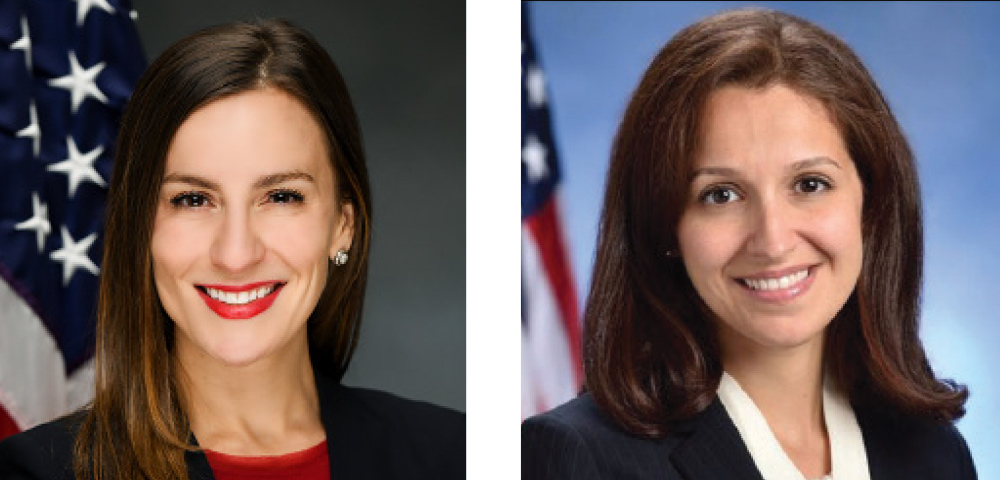
New York State Senator Alessandra Biaggi ’12 and New York State Assemblywoman Aravella Simotas ’02 drafted and successfully pushed through legislation that provides the most comprehensive protection against workplace harassment to date. As reported by Bloomberg Law, the legislation, signed into law on August 12, 2019, will no longer require that conduct be considered “severe or pervasive” for it to be challenged in court and will extend the statute of limitations for claims filed from one to three years. “With the signing of this legislation, employers across all sectors will be held accountable for addressing all forms of sexual harassment and discrimination in the workplace, and survivors will be given the necessary time to report complaints and seek the justice they deserve,” said State Senator Biaggi.

In an op-ed in The Hill last June, Professor Constantine “Gus” Katsoris ’57 decried the effect of state taxes on the nation’s elderly. “For many retirees,” he writes, “these state taxes can aggregate as high as six figures, requiring … the retiree … to move away from where they were raised or have worked all their lives … to effectively avoid these taxes. This is unconscionable.” Katsoris suggests we honor seniors by “eliminating the $10,000 cap on the deductibility of state and local taxes so they do not have to move to a low- or no-tax state to preserve their … income in their declining years.”
“For many retirees these state taxes can aggregate as high as six figures, requiring retirees to move away to effectively avoid them. This is unconscionable.”
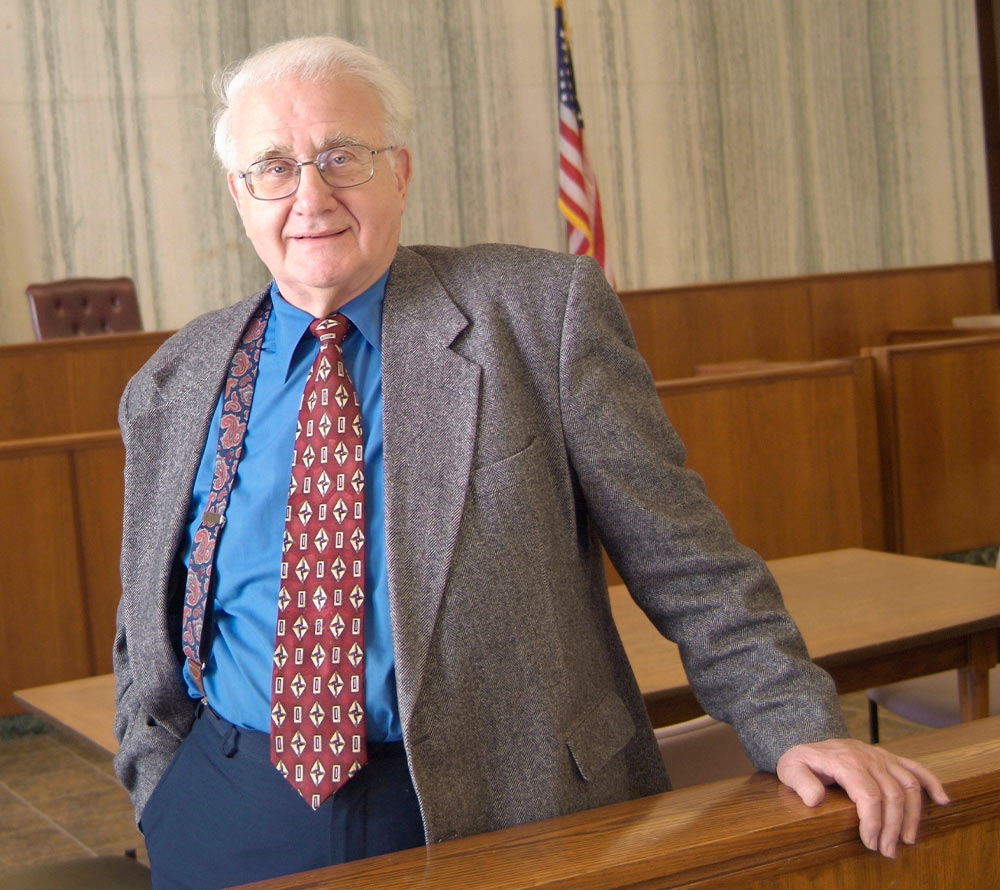
“For many retirees these state taxes can aggregate as high as six figures, requiring retirees to move away to effectively avoid them. This is unconscionable.”
Dean Matthew Diller and Professor Russell Pearce wrote an op-ed in the September National Law Journal about how to encourage ethical behavior when training professionally responsible lawyers. Among other recommendations, Diller and Pearce suggested:
- Recognizing and applauding public interest lawyers and private lawyers serving pro bono, like those who flocked to airports to challenge the travel ban and to the southern border to protect families.
- Educating for leadership in law schools. The goal is to focus not on developing individual heroes, but strong community members who lead by modeling integrity and commitment to democratic values and the rule of law.
- Teaching legal ethics to include the basic values of democracy and accountability for the rule of law.
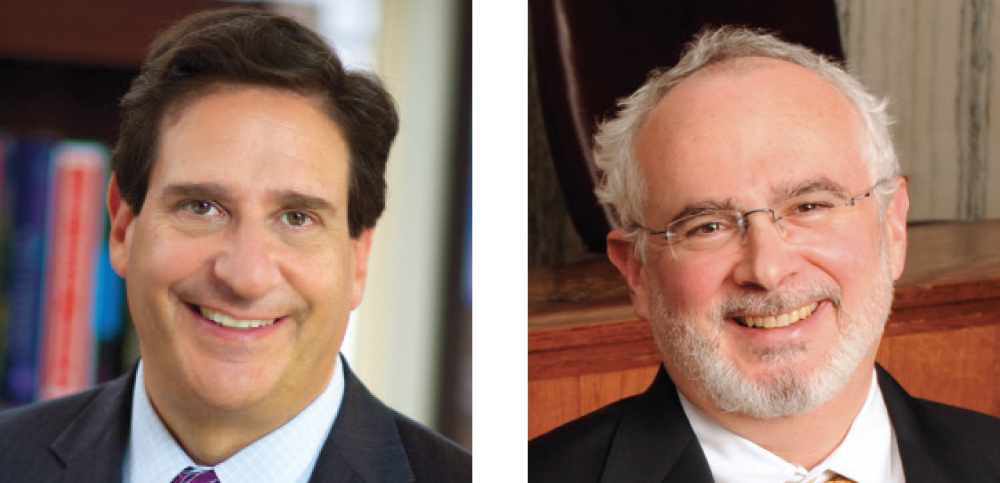
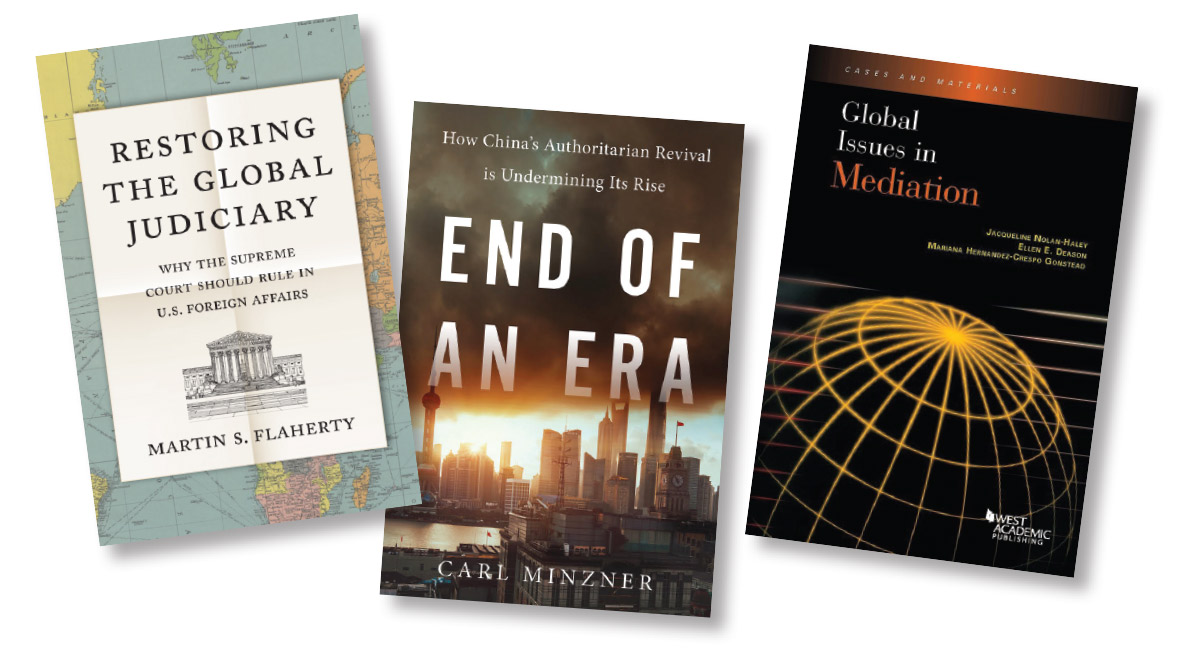
A pair of books by Professors Martin S. Flaherty and Carl Minzner explore two topics in headline news every day: the role of the federal judiciary branch and the global effects of China’s authoritarian leanings. In Restoring the Global Judiciary: Why the Supreme Court Should Rule in U.S. Foreign Affairs (Princeton University Press), Professor Flaherty argues that not only should the judiciary play a larger role in foreign affairs, but that it must. And in End of an Era: How China’s Authoritarian Revival Is Undermining Its Rise (Oxford University Press), now in paperback, Professor Minzner explores why the country’s years of reform are ending—and what that means for China’s future. In a November 1 article in The New York Times, Minzner talked about how the rise of student informers in that country was part of President Xi’s efforts to make the party “a leading force in state and society alike.” His goal, said Minzner, “is to reintroduce that element of self-censorship so that people start to think twice about speaking.”
Professor Nolan-Haley on International Mediation
This past September, 46 nations signed the United Nations’ Singapore Convention on Mediation, which offers concrete methods for enforcing international commercial settlement agreements resulting from mediation. The Singapore Convention was fortuitous for Professor Jackie Nolan-Haley, since it came on the heels of the June publication of her book, Global Issues in Mediation (co-authored with Ellen E. Deason from Ohio State and Mariana Hernandez-Crespo Gonstead from the University of St. Thomas). In the book, Nolan-Haley and her co-authors discuss the legal, cultural, and ethical issues involved in international mediation.
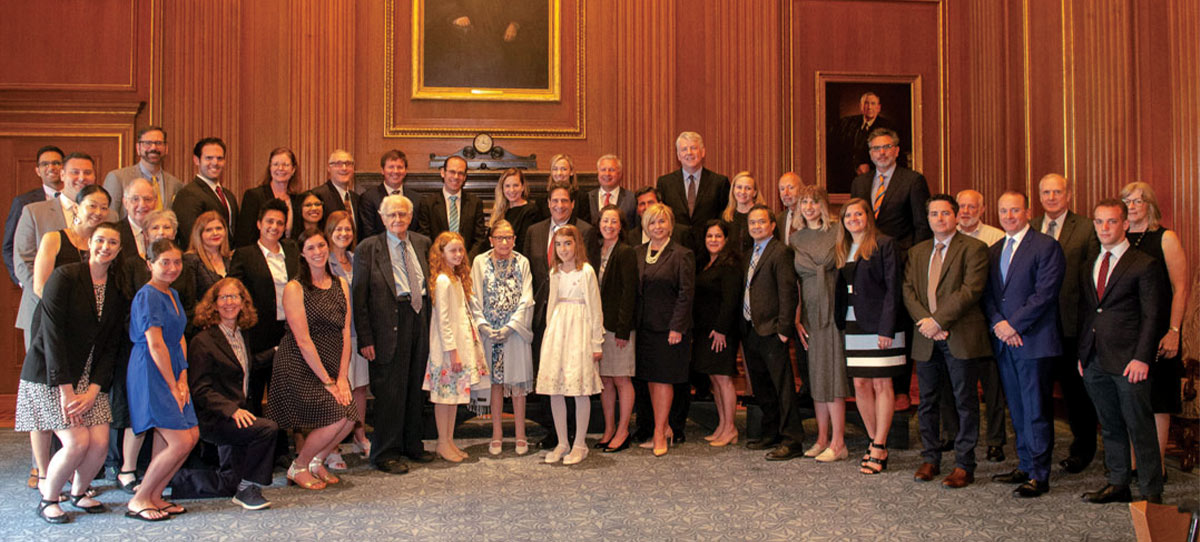
On Tuesday, May 28, 20 Fordham Law Alumni were admitted to practice before the Supreme Court. The Law School has participated in this meaningful ceremony for 32 years, resulting in the admission of more than 1,000 of our graduates to practice before the court. The alumni and their family and friends were visited by Chief Justice John Roberts and Justice Ruth Bader Ginsburg. The 2020 ceremony is March 9. Want to participate? Email juliesmith@law.fordham.edu.
On September 4, Fordham Law School announced the launch of the Center for Judicial Events & Clerkships, led by Professor Daniel J. Capra as faculty director and Suzanne M. Endrizzi ’96 as assistant dean. The center will develop innovative ways to engage members of the judiciary in the life of Fordham Law. It will also build on the school’s existing clerkship successes by enhancing support for Fordham Law students and alumni through innovative programming, marshalling resources, and fostering strategic partnerships. “We are incredibly lucky to have such a wonderful cohort of judges—both alumni and friends of Fordham—at the state and federal levels to draw upon for guidance, [as well as] a vibrant and engaged alumni clerk network to support our endeavors,” says Endrizzi.
For the first time, Fordham Law is offering an online version of its Master of Studies in Law (M.S.L.) in Corporate Compliance program. Fordham was one of the first law schools to offer a master’s in corporate compliance in 2016 and is one of the top-ranked law schools to offer a compliance master’s program in this format. “We have heard from many people who wanted to enroll in our M.S.L. program but were unable to because of their work commitments or their location outside of the New York area,” said Robert Mascola, the senior director of compliance programs at Fordham Law School. “There is growing demand for compliance education, and now the law school’s exceptional faculty and many compliance offerings are available to people throughout the world.”
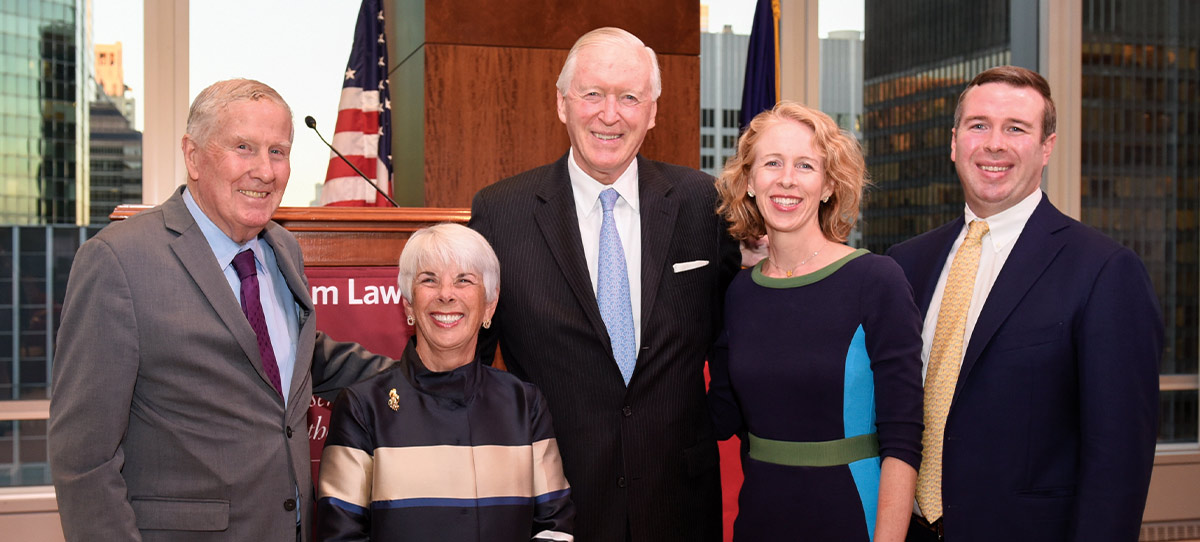
Every year, the Feerick Center hosts an awards ceremony and benefit at Mutual of America to honor the careers and lives of those who have followed in the footsteps of Dean John Feerick ’61 by upholding the Fordham Law motto, “In the Service of Others.” This year, six Fordham alumni were honored. Denis F. Cronin ’72 received the James F. Gill Spirit of Hope Award. One of New York City’s leading corporate lawyers, Cronin has served on numerous advisory and alumni boards at Fordham Law and Colgate University. Stacey J. Rappaport ’96 received the Champion of Justice Award for being an advocate for women in corporate law. For their careers of service and their contributions to Northern Ireland, William J. Flynn GSAS ’51 and Thomas J. Moran received posthumous George J. Mitchell Lifetime Public Service Awards, accepted by William Flynn Jr. and Joan Squires Moran. Finally, three alumni were awarded the Spirit of Service Award: Nancy E. Delaney ’88, Sharon L. McCarthy ’89, and Antonio X. Molestina ’89. Delaney has worked with the Feerick Center since its inception, most recently on assisting vulnerable New York City public school students with their high school applications. In October, that project received major coverage in The Wall Street Journal, which published the findings of a new Feerick Center report, “Screened Out: The Lack of Access to NYC Screened Program Admissions Criteria.” The report spotlights the failure of New York City high schools to make admissions screening rubrics publicly available and also points to New York City’s Department of Education for not holding these schools accountable.
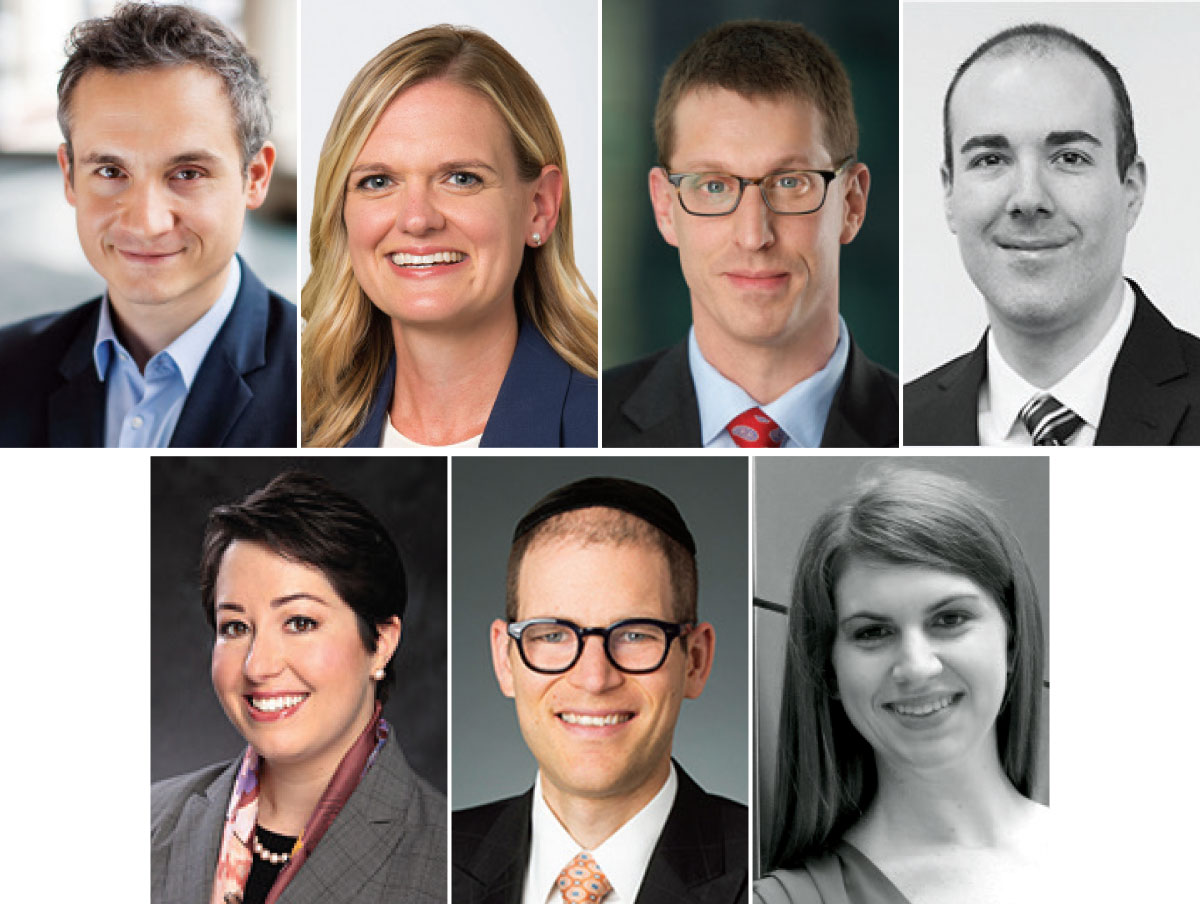
This year, after reviewing 1,300 submissions, Law360 named seven Fordham Law alumni as Rising Stars—an annual honor that recognizes attorneys under 40 whose legal accomplishments transcend their age. The only other law schools in the nation with more Rising Stars among the 175 lawyers selected were Harvard, Stanford, and Columbia. Their number includes, from top left, Cédric Burton LL.M. ’07, Wilson Sonsini Goodrich & Rosati; Sarah Passeri ’08, Holland & Knight; Eric Rothman ’07, Arnold & Porter; Richard Rubano ’07, DLA Piper; Marisa Sotomayor ’07, Paul Hastings LLP; Adam Summers ’06, Fried Frank; and Ellyde Thompson ’08, Quinn Emanuel.
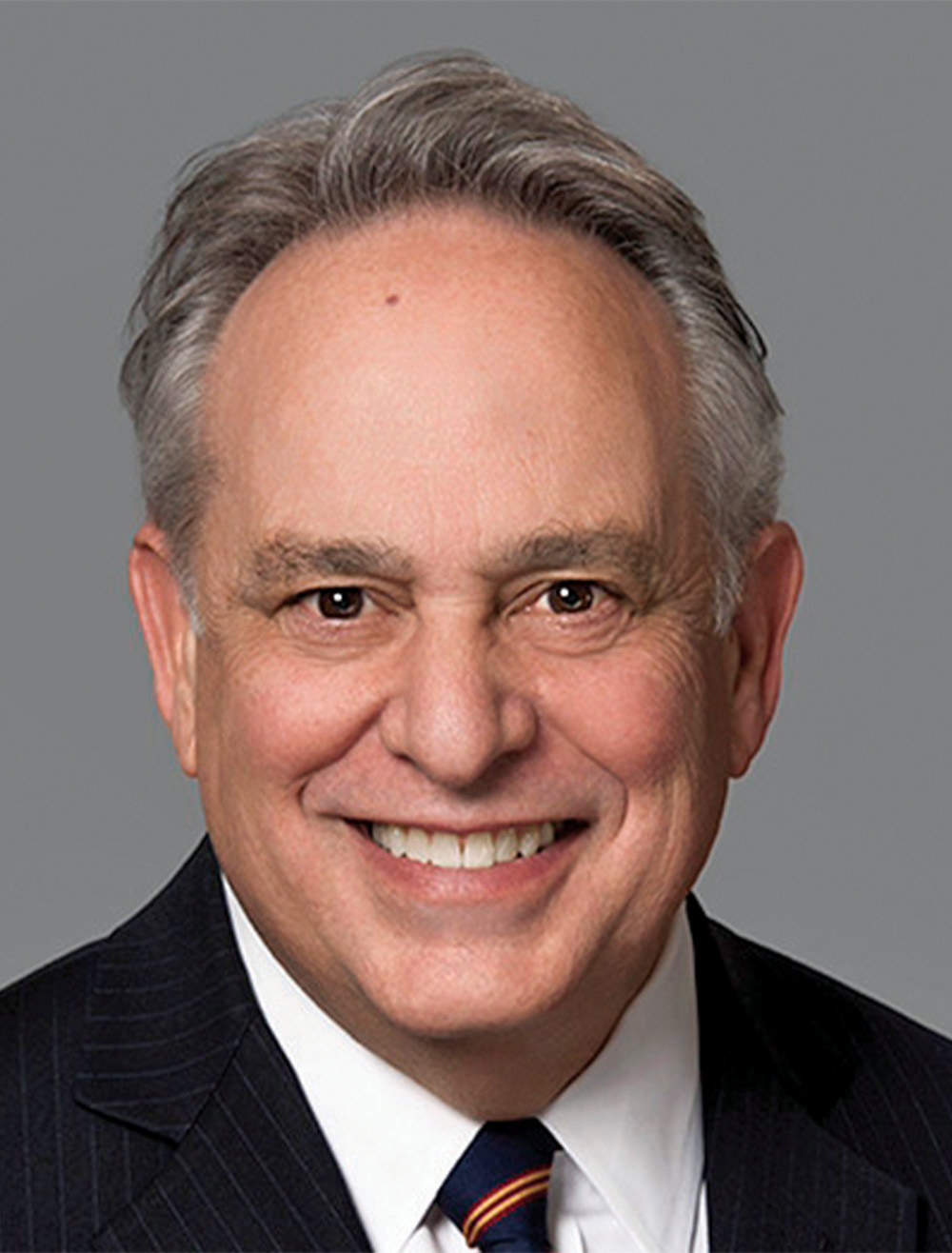
In October, Professor Jerry Goldfeder was honored with New York Law Journal’s Lifetime Achievement Award recognizing his 40 years as a dedicated teacher, tenacious litigator, prolific author, bar association leader, and expert on election and campaign finance law. It’s more than his teaching that makes him stand out: Goldfeder organizes trips to Washington, D.C., for students to meet with Supreme Court justices, U.S. senators, and members of Congress, and participates with students in seminars and panel discussions on a variety of election-related topics—part of the reason Fordham Law School students voted him Adjunct Professor of the Year in 2015 and then again in 2019.
On November 7, the Council on Legal Education Opportunity (CLEO) awarded Nitza Milagros Escalera, assistant dean of student affairs at Fordham Law, one of its CLEO EDGE awards. Escalera was one of 10 recipients who received the award in Washington, D.C. She has served for 25-plus years at Fordham Law, was the school’s first dean of diversity, and retired in December.
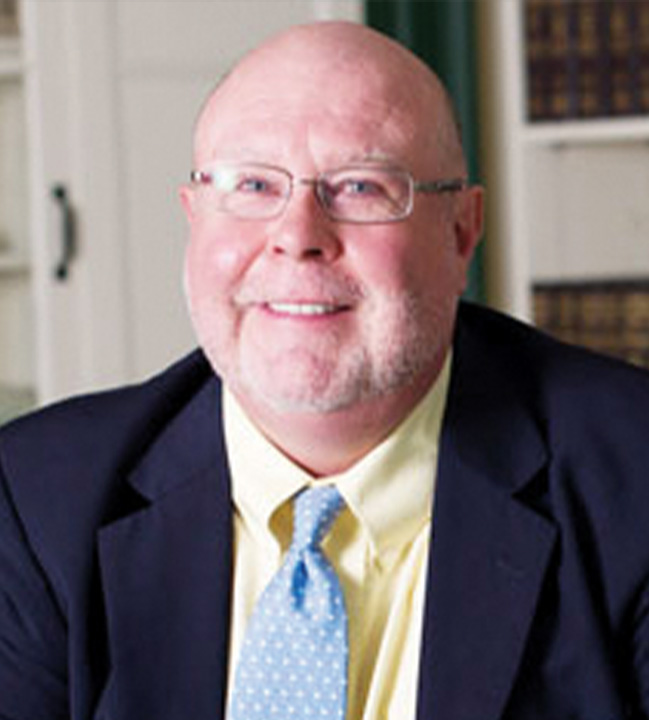
Daniel E. Casagrande ’79, a partner at Cramer & Anderson, has been named a 2019 Marvin J. Glink Private Practice Local Government Lawyer of the Year by the International Municipal Lawyers Association. The prestigious award recognizes an attorney in private practice who represents a local government, and who has “provided outstanding service to the public and who possesses an exemplary reputation in the legal community … and who is devoted to mentoring young lawyers and educating lawyers in local government law.”
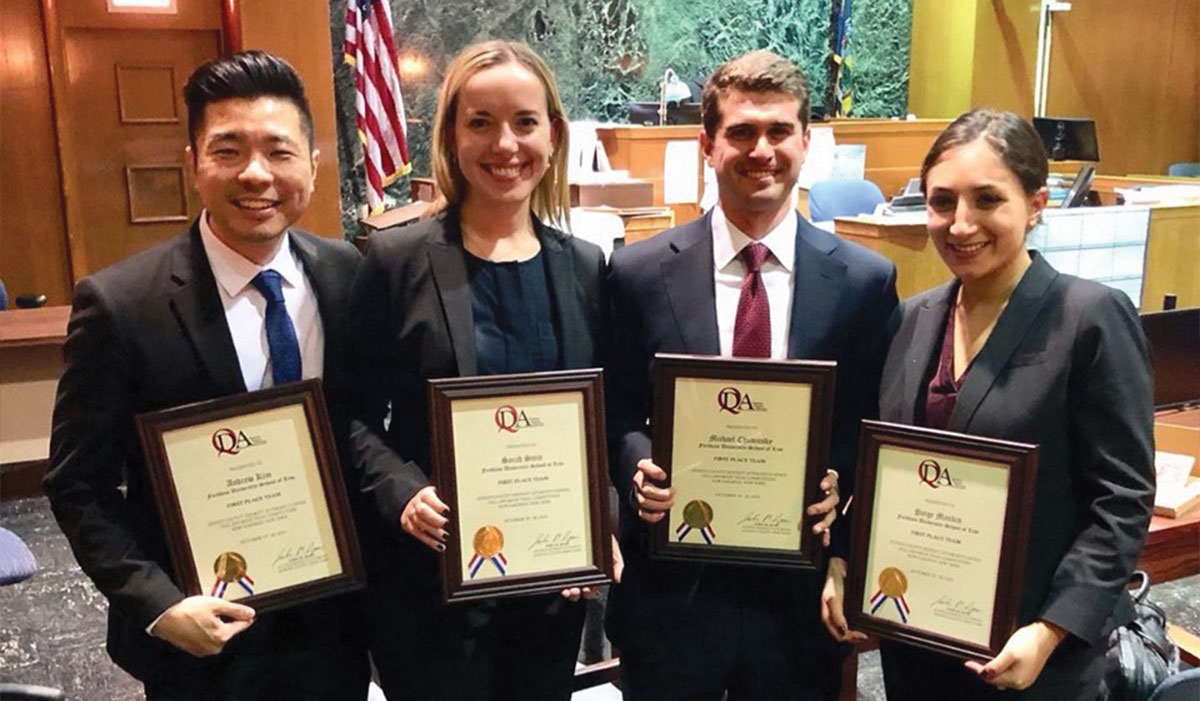
Third-year law students from the Brendan Moore Trial Advocacy Center have set the bar for all who follow: On October 20, they took first place at the Queens district attorney’s National Trial Competition, defeating 15 other teams. The victors— Andrew Kim, Sarah Stein, Michael Chubinsky, and Paige Mainkin—all pictured below, were coached by Kate Flatley ’15 and Johnny Johnsen ’16.
Fraud. It isn’t something that you imagine can happen between two friends or even acquaintances—but it does. (Think of the infamous Bernie Madoff Ponzi scheme.) “Frauds that exploit bonds of trust and friendship are particularly devastating and can quickly lead to financial ruin,” says Marc P. Berger, director of the New York regional office of the Securities and Exchange Commission. “They can also be especially tough to investigate, as victims are often reluctant to report wrongdoing.” Berger spoke at Fordham Law on November 1, at a conference co-sponsored by the SEC New York regional office. Panelists discussed strategies for detecting, preventing, and combating “community-based” financial fraud. “Madoff should not have happened,” said SEC Chairman Jay Clayton. “We need to set up our rules so that it doesn’t happen in the first place.”
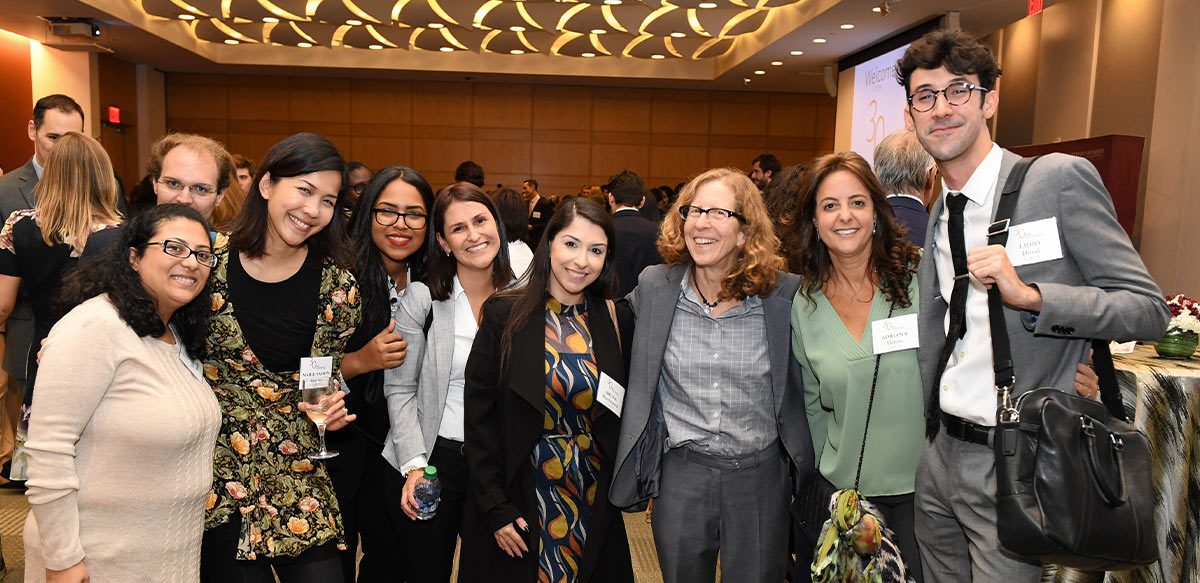
On October 17, nearly 200 members of the Fordham Law School community gathered to commemorate the 30th anniversary of the school’s Master of Laws (LL.M.) program. Founded in 1989, the program has been key in establishing and expanding Fordham Law’s international footprint. “The LL.M. program began in 1989 with just 26 students from 17 different countries,” Dean Diller observed. “Today, there are 172 LL.M. students enrolled at Fordham from 51 countries. In total, nearly 2,680 students from more than 100 countries across the globe have graduated from the program.”
The first time tennis legend Billie Jean King sat down to speak with the late Indiana Senator Birch Bayh, she thanked him profusely for all he had done for women—drafting Title IX legislation and championing the Equal Rights Amendment, among other things. On October 16, at a program at Fordham Law titled “Celebrating the Impact of Senator Birch Bayh: A Lasting Legacy on the Constitution and Beyond,” King praised Bayh, who passed away in March, and who is the only other person besides James Madison to draft more than one constitutional amendment—the 25th and the 26th. Another panelist there, Lowell Beck, former assistant director of the ABA’s Washington office, lauded Bayh as a senator who “knew the importance of working across the aisle, of working in a bipartisan way.”
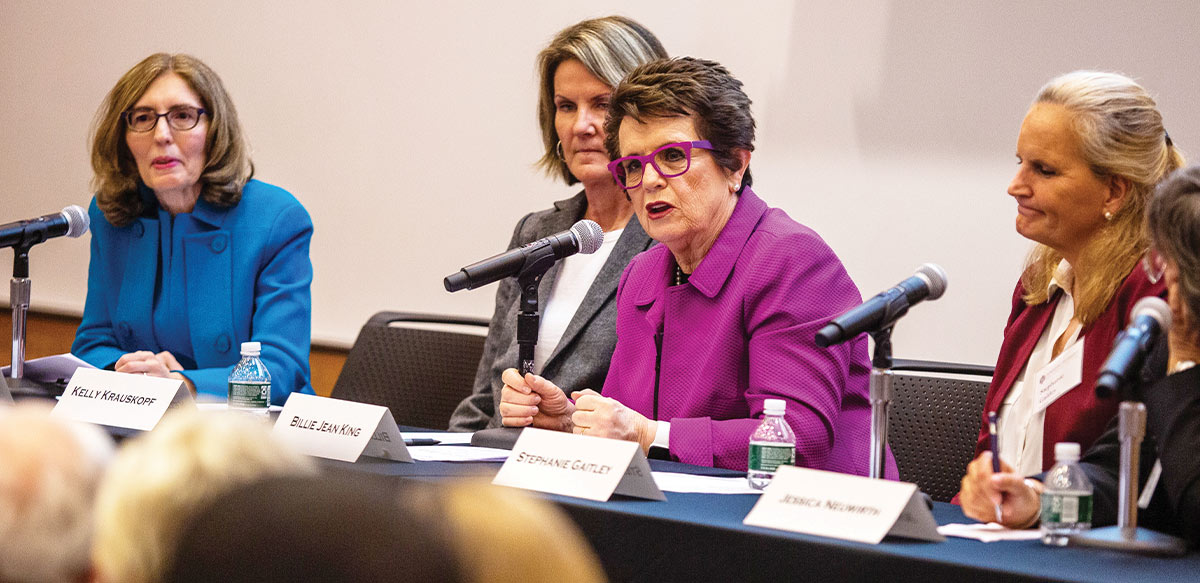
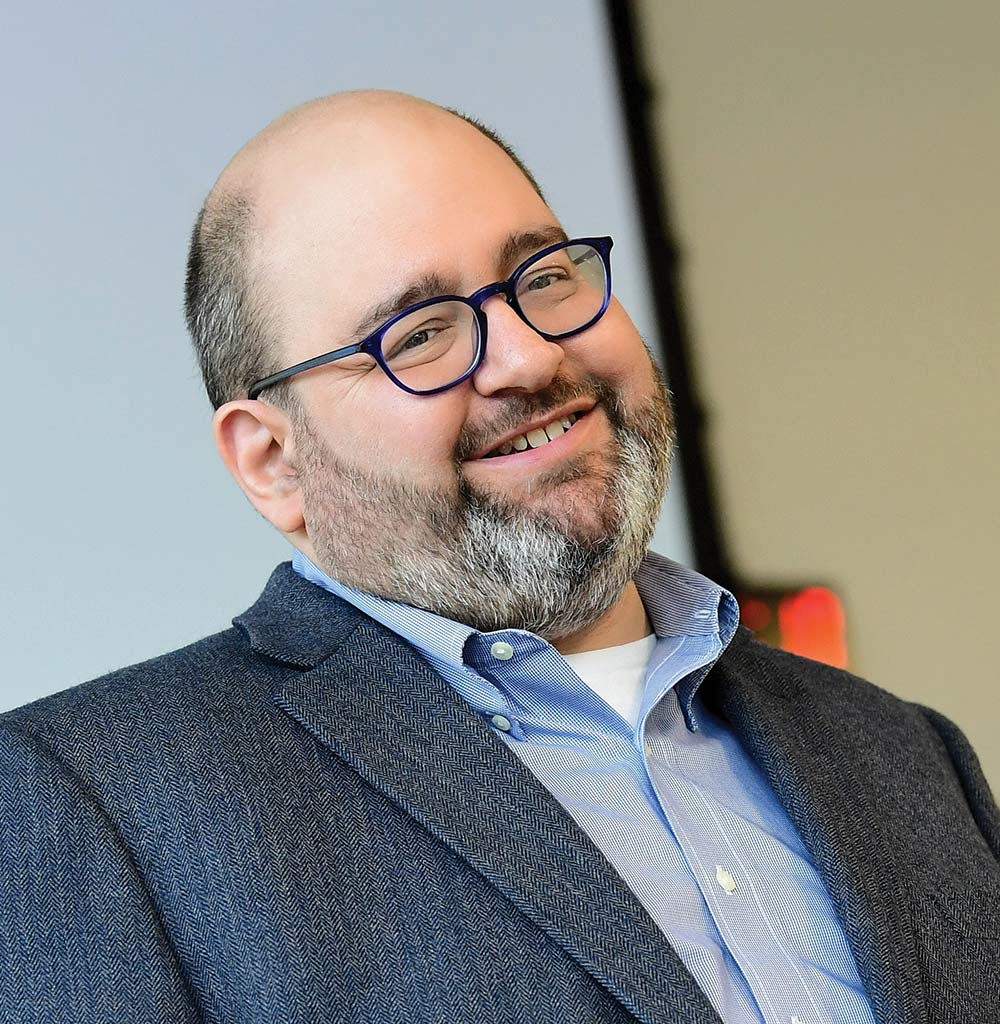
On October 28, Fordham Law lost a beloved member of its faculty with the passing of Laurence (Larry) Abraham, head of instructional services for the Maloney Library and adjunct professor of law. His colleague and friend, Todd Melnick, the director of the library, delivered Larry’s eulogy, including these memorable words:
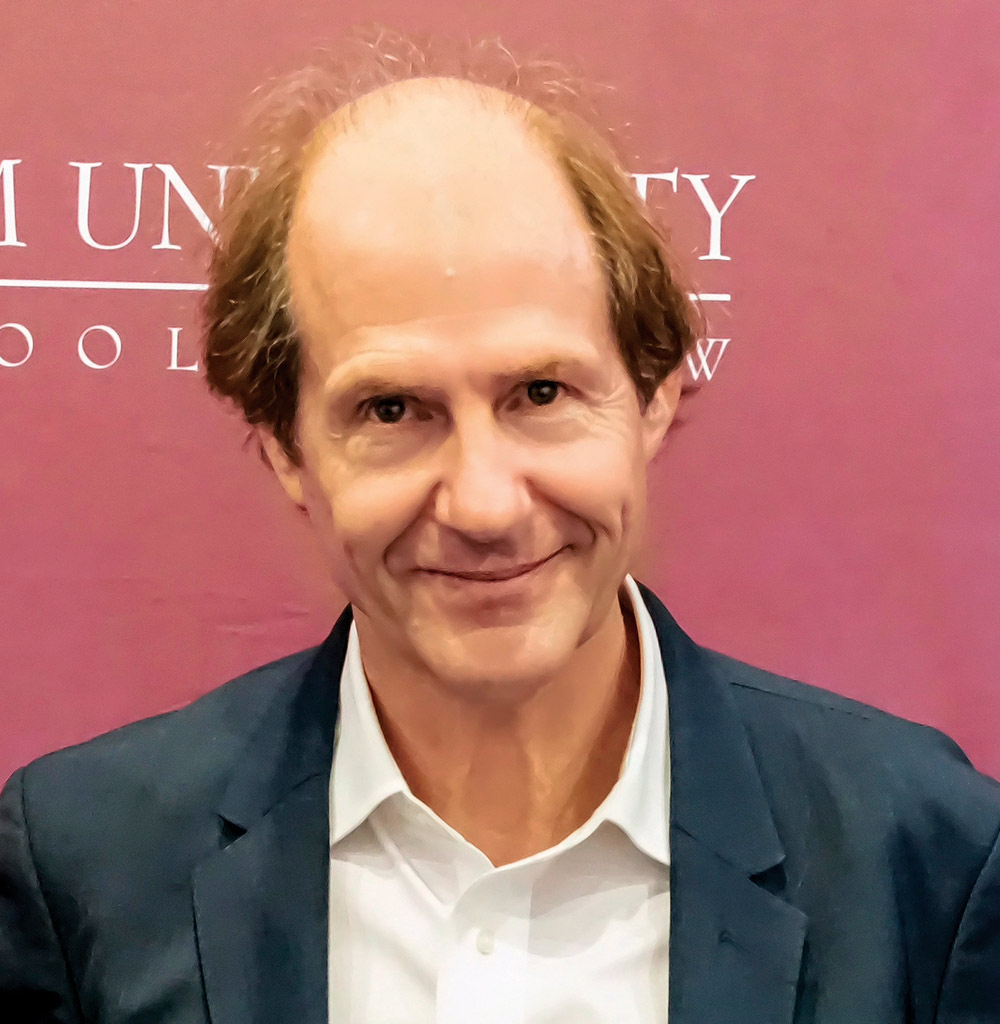
Amid intense political debate over the case for removal of the president, Cass Sunstein, the Robert Walmsley University Professor at Harvard, gave an insightful TED talk–style lecture on the historical roots of our impeachment process at an event sponsored by NYSBA, Fordham Law School, and the New York State Writers Institute. Sunstein is the author of 48 books, including, most recently, Impeachment: A Citizen’s Guide. In October, to a packed room, Sunstein explained the “untold story” of the British origins of impeachment in the 18th century. “The first shots heard not around the world, but around the colonies, were impeachment proceedings, in which the colonists started impeaching British officers for abusing their authority,” he said. As Sunstein concluded his talk, he reminded his audience: “The impeachment clause is a symbol and a reminder of who is in charge and of where sovereignty resides. More than any provision of our founding document … [it] … announces that Americans are not subjects, but citizens.”
